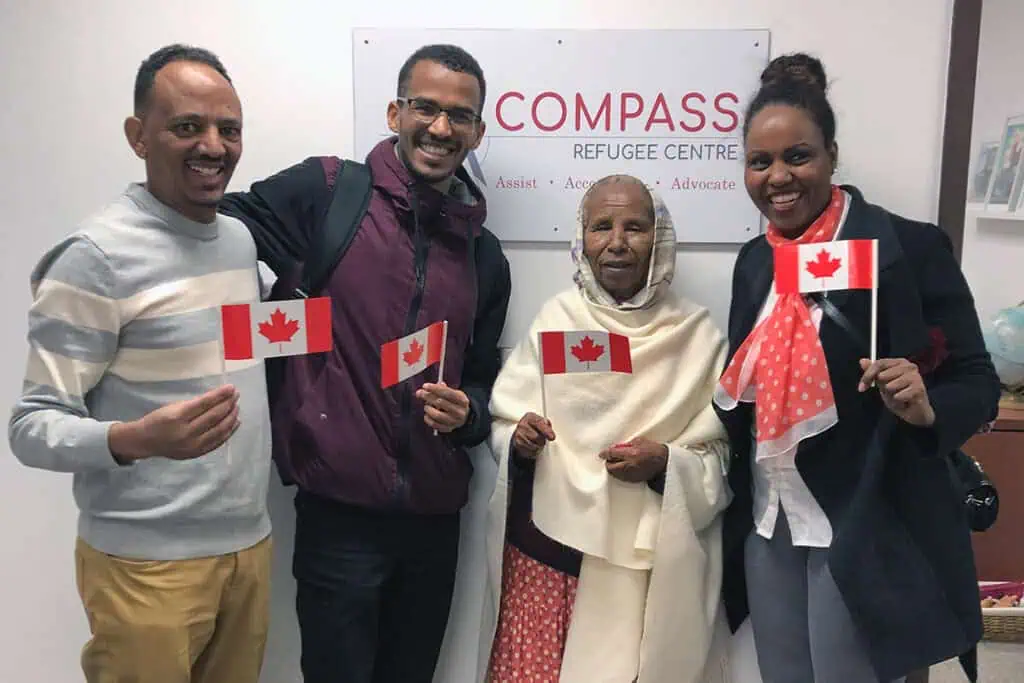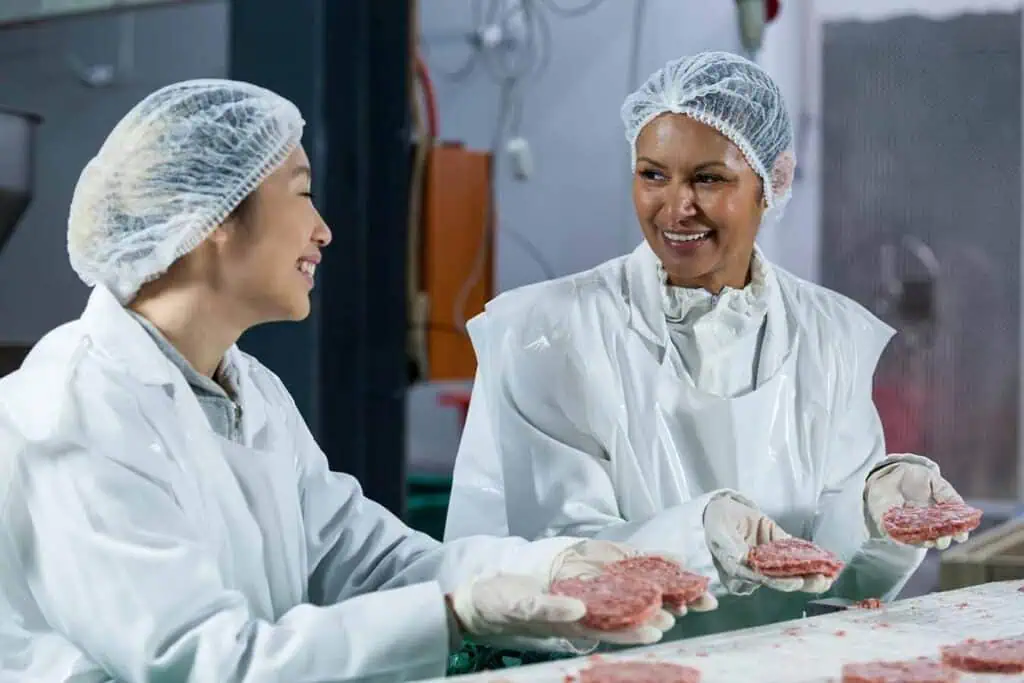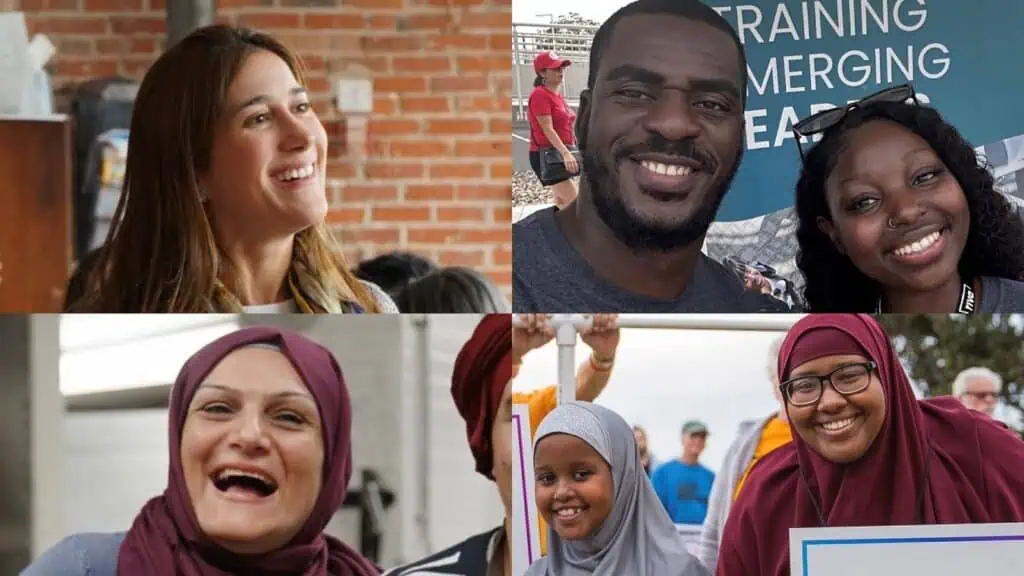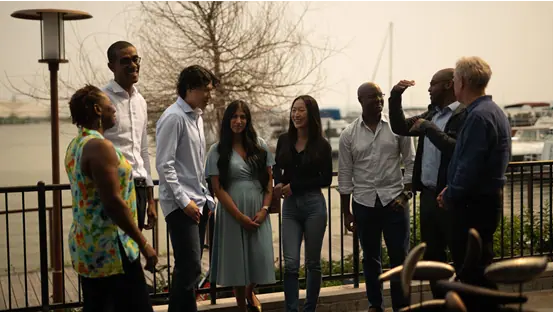Announcing the Semi-Finalists of the Opportunity Challenge: $1 Million to Uplift Immigrant Communities
Today, we are thrilled to announce the 20 semi-finalists of the Opportunity Challenge: $1 Million to Uplift Immigrant Communities. Each one of these organizations is leading crucial initiatives that support the success of immigrants and refugees and strive toward building an economy that works for all.
While much of the country was going into lockdown, the Opportunity Challenge launched in March as a joint grantmaking initiative of the WES Mariam Assefa Fund and the Tarsadia Foundation. The initiative sought to identify impactful, community-led solutions to the obstacles that immigrants and refugees encounter as they seek to achieve their goals and fulfill their potential.
The response to the call for submissions was astonishing: We received applications from 470 organizations in 42 states across the U.S. Collectively, the applications highlighted the urgent need for resources and supports to flow into immigrant communities and the organizations that serve them, especially as the size and scope of the COVID-19 economic and health crises became clear.
The Opportunity Challenge team conducted an initial eligibility and programmatic review before bringing the top 100 applications to a selection committee of experts and community leaders. “The applications were thought-provoking, and I was intrigued by the vast array of ideas, programs, and innovative approaches,” said selection committee member Craig Valdez of New American Leaders. The selection committee grouped 20 semi-finalists into two main categories: new ideas and established programs.
These eight semi-finalists are piloting new ideas:
- Centreville Immigration Forum (Centreville, Virginia)
- Many Languages One Voice (Washington, DC)
- New Mexico Dream Team (Albuquerque, New Mexico)
- Oakland Bloom (Oakland, California)
- Pioneer Valley Workers Center (Northampton, Massachusetts)
- South Dakota Voices for Peace (Sioux Falls, South Dakota)
- Suenos Sin Fronteras de Tejas (San Antonio, Texas)
- Suma (Portland, Oregon)
These 12 semi-finalists are seeking to expand existing programs:
- Center for Family Life – SCO Family of Services (Brooklyn, New York)
- Code the Dream (Durham, North Carolina)
- Encuentro (Albuquerque, New Mexico)
- Inclusive Action for the City (Los Angeles, California)
- Jewish Family Services of Washtenaw County (Ann Arbor, Michigan)
- MAAC (San Diego, California)
- Mission Asset Fund (San Francisco, California)
- Neighborhood Development Center (Saint Paul, Minnesota)
- PODER Emma Community Ownership (Asheville, North Carolina)
- Sustainable Economies Law Center (Oakland, California)
- Tahirih Justice Center (Falls Church, Virginia)
- Worker-driven Social Responsibility Network (New York, New York)
The semi-finalists put forth a range of ideas that could empower immigrant workers and ensure their ability to thrive. As a group, the applications raised several key themes that will continue to shape the work of the WES Mariam Assefa Fund:
- Economic mobility depends on many factors outside the workplace. Career advancement requires more than education, skills, or a network of professional peers. Workers need access to the “social determinants of work,” such as reliable and affordable child care, transportation, housing, and other critical supports. Semi-finalist Many Languages One Voice (MLOV) provides a mutual aid model to tackle a challenge many immigrant families face—that of finding affordable child care. MLOV’s model also seeks to improve the economic mobility of single mothers and families.
Augustina, an MLOV client who was laid off because of the pandemic, said, “I can’t even think about going back to work unless there is a stable, consistent way for my children to be cared for while I am at work. Child care is part of my safety net that will help me survive these totally new times, where nothing is the same as it was before.”
- Worker-centered solutions, such as worker cooperatives, entrepreneurship training, and workers’ rights programs, can lead to multiple benefits, such as supporting wealth creation, empowering individuals to manage their own careers, and ensuring employer accountability for workers’ health and safety. Brightly, a program of Brooklyn-based semi-finalist Center for Family Life, a program of SCO Family of Services, is a franchise of worker-owned, women-run, community-led cooperatives that offer eco-friendly cleaning services. The worker cooperative model puts the power and decision-making into the hands of immigrant workers themselves.
“By expanding the Brightly model outside of New York City, our goal is to foster worker-ownership and asset and leadership development across the country, using a proven model that uplifts immigrant communities,” said Maru Bautista, Director of the Cooperative Development Program at Center for Family Life/SCO Family of Services.
- As the pandemic forces organizations to transition their traditional service delivery models to virtual formats, many programs need help to advance digital equity that will enable immigrant workers to benefit from new technologically enabled service models. Semi-finalist Suma aims to address digital divides by creating accessible platforms for digital organizing, enterprise, and justice. Suma offers a digital capacity–building curriculum for low-income communities and people of color.
Suma Executive Director Alan Hipolito said, “We envision a day when frontline community data is an organized resource, and when it can be used to overcome poverty and build political power.”
Learn more about each of the 20 semi-finalists and their projects.
Seven of the semi-finalists will be awarded grants of up to $200,000, enabling them to bring their ideas to life and empower immigrant and refugee communities. We look forward to announcing the Opportunity Challenge finalists this September and sharing more about the impressive work each of these organizations is leading!




